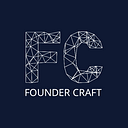Does Experience Rate-Limit Our Creativity?
Startups are a lot like massively multiplayer online games (MMOs). There’s a crew, a broad quest, a series of missions, potential alliances and countless adversaries. At the heart, though, is the team made up of warriors, mages, thieves, and many other players with various skills. And therein lies the rub.
As with most games, you choose a character type at the game's onset and that defines the rules and experience for the remainder of your journey. From that point forward, what you require to survive, what you value, how you judge success, and how you navigate new challenges are specific and certain. The adventure continues to evolve as your experience increments.
Much can be same for the startup and its founders. Teams usually unite either through a common, shared set of skills and interests or to fill the voids in their own resumes. This formula works extremely well, often giving them the resources they need to succeed, even if some hands are idle at different times.
The danger, of course, comes as problems, solutions, customers, and businesses evolve over time. In the case of software startups, too often the solution is generally a technical one, even though a more human approach may be more useful. For sales-driven organizations, everything can be handled with the right relationship, even though software and automation may prove the missing link.
As the saying goes, when you’ve got a hammer, everything’s a nail. But these instincts can and will fail us, eventually.
Most problems have simple solutions, even though not all simple solutions are the obvious ones. By relying too often on our own, innate, natural instincts, we may be missing out on the optimal solution.
It’s the reason we build diverse teams in the first place. Smart founders not only hire people that operate above their level, but they also work hard to diversify the problem-solving skillset of the organization as a whole. Teams that blend multiple disciplines tend to deliver the best results.
Innovation is the byproduct of collaboration and compromise, challenging our fundamental assumptions, pursuing the unexpected paths, and leveraging the best ideas towards the optimal solution. It’s no wonder that some of the greatest decisions we make seem to happen almost by accident. That accident was by design, of course.
Of course, it’s just as easy to get this all wrong. Our core experience has the potential to disrupt our business in two key ways.
First, it may hide the best opportunities behind an individual or organizational bias. Companies with strong leadership, strong values, and finely-tuned tradecraft all run the risk of settling into a well-worn decision-making process. The internal frameworks and processes used to make decisions may inherently embody the exact bias that restrains our creativity.
In gaining operational efficiency, we naturally sacrifice creativity.
Second, it may create a suffocating culture. Employees are expected to offer solutions. The challenge is that not all solutions are created equal and doing things the “company way” can often smother their individual creativity or, at the minimum, make them hesitant to speak freely and openly on their potential ideas.
When founders, leaders, and processes work too efficiently to eliminate “poor” options, they simultaneously suppress the originators of those ideas. While no one advocates for spurious, ill-considered ideas, it’s hard to deny the power to think without constraints.
Creativity is the power to ideate without constraints
Culturally speaking, we can tend to oversimplify, overbear, or override others in our organization, either intentionally or unintentionally.
Our greatest potential is guided, not ruled, by our experiences. Every new endeavor is an opportunity to expand that knowledge base if we’re mindful of the process.
Gregarious Narain is a serial entrepreneur and founder, having founded more than a dozen companies over the past 25 years. He is the founder of Founder Craft — a startup advisory helping founders and founding teams to define, understand, and navigate the tools, skills, and experience needed to succeed.
Book some time with us at https://foundercraft.com

